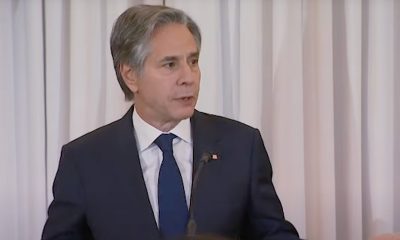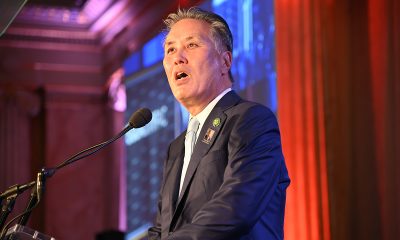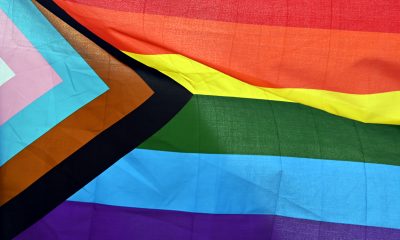Africa
US sanctions Uganda parliament speaker, other officials
Anita Among slams ‘politically motivated’ decision

The State Department on Thursday announced sanctions Ugandan Parliament Speaker Anita Among and other officials for “significant corruption or gross violations of human rights.”
State Department spokesperson Matt Miller in a press release notes Among “is designated due to involvement in significant corruption tied to her leadership of Uganda’s Parliament.” The press release further indicates the U.S. has sanctioned former Karamoja Affairs Minister Mary Goretti Kitutu, former Karamoja State Affairs Minister Agnes Nandutu, and former State Finance Minister Amos Lugolobi “due to their involvement in significant corruption related to conduct that misused public resources and diverted materials from Uganda’s neediest communities.”
“All four officials abused their public positions for their personal benefit at the expense of Ugandans,” said Miller.
The press release also notes the U.S. has sanctioned Peter Elwelu, the former deputy chief of the Ugandan Peoples’ Defense Forces, because of “his involvement in gross violations of human rights” that include extrajudicial killings.
“As a result of these actions, the designated Ugandan officials are generally ineligible for entry into the United States,” said Miller.
Miller said the State Department is “also taking steps to impose visa restrictions on multiple other Ugandan officials for undermining the democratic process and repressing members of marginalized or vulnerable populations in Uganda.”
“These individuals are responsible for, or complicit in, the repression of Ugandan members of political opposition groups, civil society organizers, and vulnerable communities in Uganda,” he said.
Wednesday marked a year since Ugandan President Yoweri Museveni signed the country’s Anti-Homosexuality Act that, among other things, contains a death penalty provision for “aggravated homosexuality.”
The U.S. has previously sanctioned Ugandan officials and removed the country from a duty-free trade program. A group of Ugandan LGBTQ activists have appealed April’s Constitutional Court ruling that refused to “nullify the Anti-Homosexuality Act in its totality.”
The State Department press release does not specifically mention the Anti-Homosexuality Act, and the Washington Blade has reached out for additional comment. The press release does, however, say the U.S. “stands with Ugandans advocating for democratic principles, a government that delivers for all its citizens, and accountability for actions committed by those who abuse their position through corruption and gross violations of human rights.”
“Impunity allows corrupt officials to stay in power, slows the pace of development, facilitates crime, and causes unequal distribution of resources, which can affect underrepresented and underserved populations disproportionally,” reads the press release. “Today’s actions reaffirm the U.S. commitment to support transparency in Uganda’s democratic processes, counter corruption globally, and address the broader culture of impunity that prevents all Ugandans from enjoying their human rights and fundamental freedoms.”
The British government in April sanctioned Among, Kitutu, and Nandutu.
Ugandan media reports note Among has described the sanctions as “politically motivated” because she supports the Anti-Homosexuality Act.
Africa
Lesbian South African MP named to country’s new Cabinet
Steve Letsike won a seat in the National Assembly on May 29
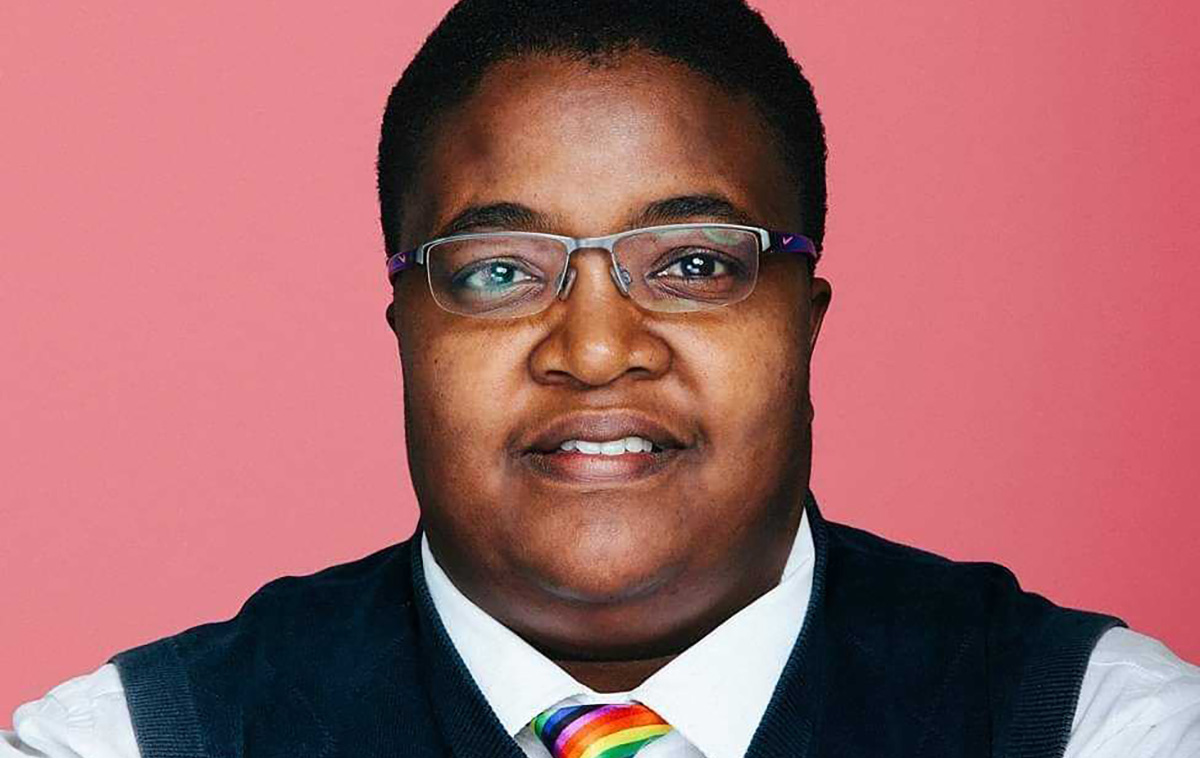
South African President Cyril Ramaphosa on Sunday appointed lesbian MP Steve Letsike to his Cabinet.
Letsike, founder of Access Chapter 2, a South African advocacy group who is a member of the African National Congress that Ramaphosa leads, will be the country’s deputy minister of women, youth, and people with disabilities.
Letsike won a seat in the South African National Assembly in national and provincial elections that took place on May 29.
The ANC lost its parliamentary majority that it had had since Nelson Mandela in 1994 won the South African presidency in the country’s first post-apartheid elections. Ramaphosa on Sunday announced Letsike and other new Cabinet members after the ANC and nine other parties agreed to form a National Unity Government.
The Washington Blade has reached out to Letsike for comment.
Africa
Congolese justice minister orders prosecutor general to arrest LGBTQ allies
Constant Mutamba issued directive on June 15, implementation unclear
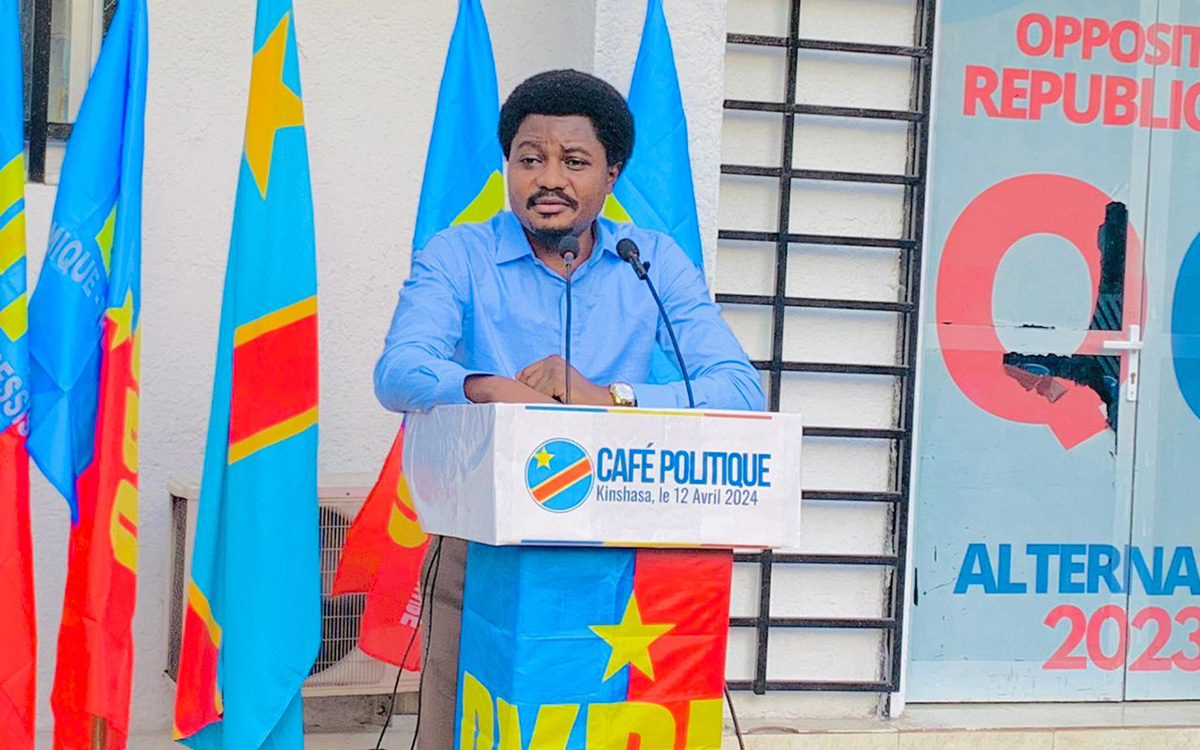
Congolese Justice Minister Constant Mutamba has instructed his country’s prosecutor general to arrest LGBTQ allies.
The newly appointed justice minister in a June 15 communique said the prosecutor general should initiate legal proceedings against people who advocate for the LGBTQ community in Congo.
Although same-sex marriages are constitutionally prohibited, there is currently no law that criminalizes consensual same-sex sexual relations. The communique has raised a lot of eyebrows from social and LGBTQ activists who are asking on what grounds Mutamba issued the communique.
“He could have started by initiating a bill in this direction, but in the current Congolese legislation he is missing the point,” said Jean Claude Katende, a Congolese human rights activist who is the president of the African Association of Human Rights. “If he wants to repress homosexuals, he must initiate a law which must make this behavior an offense and have it punished. He will be arrested for complicity in arbitrary arrests. The constitution is clear, no one can be prosecuted for an act which does not constitute an offense.”
Khelver Hermano, a Congolese social commentator, said the law should not be interpreted based on one person’s emotions.
“LGBT marriage is already not applied in the DRC but the minister wants to incarcerate those who do it informally without a legal basis,” said Hermano. “The law is not interpreted according to our will.”
“Does the penal code in the DRC recognize polygamy? Why don’t we arrest all these known polygamists?” asked Hermano. “Just as polygamists are not prosecuted, we cannot do so against LGBT people.”
Many Congolese people, however, have welcomed the communique, arguing same-sex relations are un-African and unorthodox.
Article 172 of the country’s penal code states a person “who commits a moral crime by exciting, facilitating or promoting to satisfy the passions of others, debauchery or the corruption of persons of either sex under or apparently under the age of 21 years shall be punishable by a prison term of three months to five years or a fine.” Article 176 says a person “who engages in activities against public decency shall be punishable by a prison term of eight days to three years and/or a fine.”
Although not entirely applicable, the prosecutor general can use these two penal code articles to initiate the arrests — the country in recent years has seen some arrests of LGBTQ people.
The June 15 communique is not the first time Mutamba has come out against the LGBTQ community.
Mutamba earlier this year introduced a bill that would criminalize acts of homosexuality. The proposal received widespread support, particularly on social media where many Congolese people described it as a turning point for the country and for the continent at large.
Although parliament has not formally debated the bill, activists are concerned it will pass without many major objections because most MPs have previously said they do not support the LGBTQ community. It remains unclear how the prosecutor general will executive Mutamba’s communique.
Africa
Prominent South African activist elected to country’s parliament
Steve Letsike founded Access Chapter 2

A prominent South African LGBTQ activist has won a seat in the country’s parliament.
Steve Letsike, a lesbian woman who founded Access Chapter 2, a South African advocacy group, is a member of the African National Congress. She is also part of the ANC’s National Executive Committee that determines the party’s direction.
Letsike won a seat in the South African National Assembly in national and provincial elections that took place on May 29.
The ANC lost its parliamentary majority that it had had since Nelson Mandela in 1994 won the South African presidency in the country’s first post-apartheid elections. MPs earlier this month re-elected President Cyril Ramaphosa after the ANC invited the Democratic Alliance and other parties to form a Government of National Unity.
Letsike in a statement to the Washington Blade described her election as “a milestone for the people of South Africa, and also affirmative of our party’s posture that is inclusive and intention to transformation agenda.”
“I am not in parliament for myself but the people that trusted the ANC to send individuals that will put people first,” said Letsike. “In that cohort that includes the LGBTI people like myself. Rooted in the teaching of a just society, that seeks equality and believes in the rule of law. That demand on developmental agenda from a queer lens and clear priorities of the people is important.”
“I am delighted by this task, trust and hope for our people,” she added.
-

 Canada1 day ago
Canada1 day agoToronto Pride parade cancelled after pro-Palestinian protesters disrupt it
-

 Theater4 days ago
Theater4 days agoStephen Mark Lukas makes sublime turn in ‘Funny Girl’
-

 Baltimore3 days ago
Baltimore3 days agoDespite record crowds, Baltimore Pride’s LGBTQ critics say organizers dropped the ball
-

 Sports4 days ago
Sports4 days agoHaters troll official Olympics Instagram for celebrating gay athlete and boyfriend

